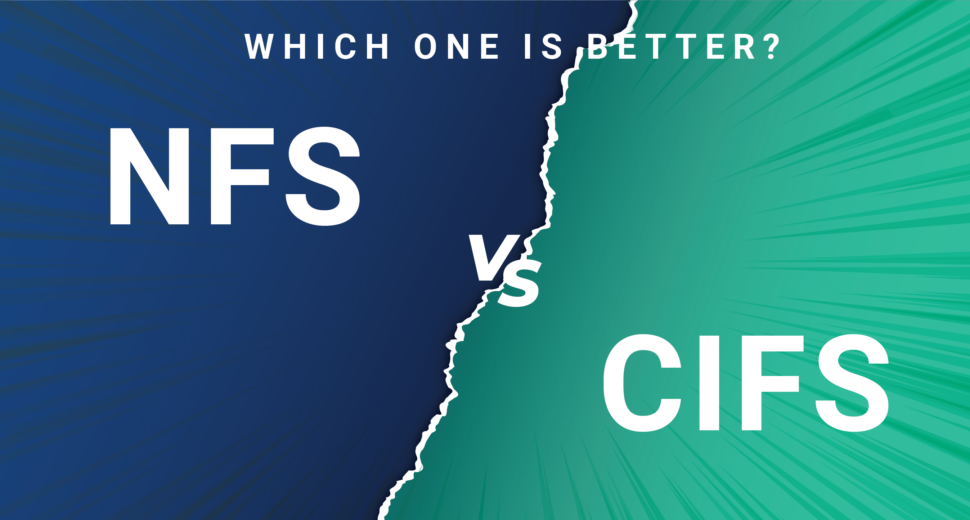NFS and CIFS – Which one is better?
NFS and CIFS are both network file-sharing protocols. NFS is typically used in Unix/Linux environments, allowing remote access to files on a network. CIFS, on the other hand, is primarily used in Windows environments and enables file sharing across networks, including Windows-based systems.
Difference between CIFS and NFS
-
Port Protocols
CIFS works on UDP ports 138 and 137 and TCP ports 139 and 445. On the other hand, both TCP and UDP use port 111 for NFS. NFS also uses port 2049 for both UDP and TCP, port 1110 to see the state of the cluster and clients, and port 4045 to get to the NFS lock manager.
-
Communication Features
Communication over CIFS can sometimes be a mess, which can make it hard to manage and keep a stable link. Even though connection problems can happen with NFS, the experience is usually more reliable and less troublesome than with CIFS.
-
Requirement of Sessions
CIFS requires sessions, which means that both the client and the server must start and keep a session open for the whole time they are talking. On the other hand, NFS doesn’t need sessions and gives you more freedom when accessing files remotely.
-
Security
CIFS has more advanced security features than NFS, which makes it a safer pick. It has strong authentication methods and encryption choices to protect the privacy and integrity of data. Even though NFS works, it doesn’t provide the same amount of security and doesn’t have any special security features.
-
Scalability
When compared to NFS, CIFS’s scaling features aren’t as good. NFS was made with scalability in mind and has better support for distributed file systems. This makes it a great choice for environments that need high speed and scalability.
-
Speed
CIFS and NFS are about the same when it comes to how fast they can communicate. NFS, on the other hand, is great at fast communication, which makes it a good choice for apps that need quick and easy access to files.
-
Implementation
Setting up CIFS can be hard, and finding problems can be hard because of how complicated it is. On the other hand, NFS is known for being easy to use and has an easier installation process. NFS makes it easier to set up and handle file sharing with commands that are easy to run.
-
File Naming
CIFS uses the user and file-sharing interface to change the names of files and make certain file characters available. It does this with the help of CHARMAP. In NFS, it’s not as easy to name and describe files as it is in CIFS. Some letters in old file names may not be recognised by newer operating systems, which could cause compatibility problems.
-
LDAP Services
LDAP (Lightweight Directory Access Protocol) services can be added to CIFS, which lets directories be stored and accessed. LDAP servers can be used to look at information in NFS by setting up the system to fit the storing needs.
-
Transportation
CIFS is often used for direct hosting, and its transport over IP and TCP protocols depends on NetBIOS. On the other hand, NFS is a transport-dependent protocol with a high rate of connection speed that makes sure data is sent quickly and efficiently.
Conclusion
Codeyo Genie is here to help, so don’t forget that. If you need more help or would rather have an expert show you the way, contact us today to improve how your website works and make sure your users can always get to it.
In the end, when deciding between NFS and CIFS, it is important to think about the specific needs and setting in which they will be used. Even though CIFS may have better security features and NFS may be faster and easier to scale, the choice comes down to what you need. We specialise in Server Management Services at Codeyo Genie, and we know how to work with both NFS and CIFS systems. Feel free to get in touch with us if we can help you make a better choice for your remote contact needs.
Remember that choosing the right protocol is important for smooth and effective remote contact. With our thorough comparison of NFS and CIFS, you can choose the one that best fits your needs.

